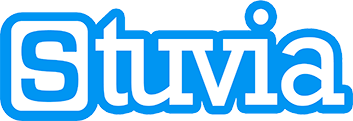You will notice competencies everywhere these days: in your course description, in the definition of a learning objective, or the vacancy for an internship. But what exactly are competencies? And what is the difference between competencies and skills? No worries! We have listed the definition, the most important competencies, and several competency examples for you.
What are competencies?
Competencies are a combination between knowledge, skills, and personal qualities that allow you to achieve specific learning goals during your studies or career. You can divide competencies into three parts:
- Knowledge → the information you know
- Skills → the actions you can perform well
- Personal qualities → your attitude or character.
What is the difference between competencies and skills?
Even though competencies are partly skills, competencies and skills are not the same things. Therefore, the difference between competencies and skills is that skills are part of competencies, but a skill is not a competency. So you can master a skill, but not the competency. Creativity for example is about coming up with new ideas or solutions that deviate from established thinking patterns. A skill you can have in this regard is associating by making a mind map.
What competencies exist?
Now you know what competencies are and what the difference is between competencies and skills, we can start looking at exactly what competencies exist. In the competency table below, you’ll see some examples:

What are the most important competencies to develop?
Looking at competencies in training courses and job vacancies, the competencies highlighted in blue are the most important competencies to develop. Of course, it always depends on your field what competencies are most important, but experience shows that you are trained well in these competencies during your studies.
Competencies: Examples
To help you even more, we have listed some competencies examples for you in the table below:

A fellow student with whom you are in a project group called in sick this morning when she was supposed to present the group project in front of the class. Instead of not giving the presentation, you now give the presentation. You adapt to the situation.

You have to present a new idea to someone who has little knowledge of how things work. You can present it in such a way that it can be understood by everyone present. You are communicative.

You know you have to take an exam for a new subject in a few weeks. You write a summary to help you know and be able to apply the study material during your exam. You have the ability to learn the study material.

You have to pitch a new idea to a potential client. You do this by matching the content with the client's expectations, using a confident attitude, and not using doubting language in your presentation. After all, your idea is the best.

Your colleague is struggling to complete a project even though the deadline is getting closer. To support your colleague, you contribute to the task to achieve joint results. You work together.
Did you know that your study material is worth money? Make money with your study material and generate a passive income.
